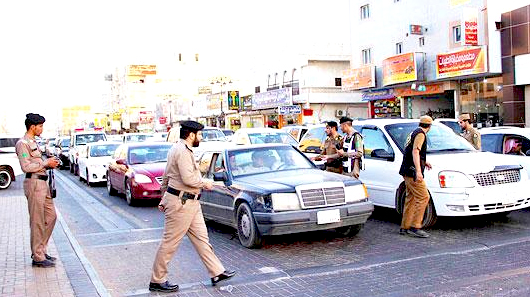Riyadh, Mar 23: Recent statistics released by the Ministry of Interior have revealed that nearly 300,000 violators of the Kingdom’s labor and residency regulations have been deported during the past five months.
“An average of 2,000 illegal expats are sent out of the Kingdom every day,” the ministry said as Saudi authorities continued their campaign throughout the country to flush out violators.

The information showed that Border Guard patrols arrested 900,000 infiltrators who tried to enter the Kingdom illegally, with 84 percent of them coming through the southern borders. There are currently 15,769 violators in shelters awaiting completion of deportation procedures.
During the past two weeks security officers and Labor Ministry officials conducted coordinated raids in different parts of Tabuk and netted more than 1,500 illegals.
Lt. Col. Khaled Al-Ghabban, spokesman of Tabuk police, said security officers have been deployed in different parts of the region, including the main streets, to check documents of expats.
“During the past month, we have arrested 2,750 violators. We also targeted employers who provide jobs to illegals violating laws,” he said, adding that police would not show any leniency toward illegals.
Gen. Mohammed Al-Ghamdi, spokesman of Border Guards, said his officers are more than ready to face intruders.





Comments
Add new comment